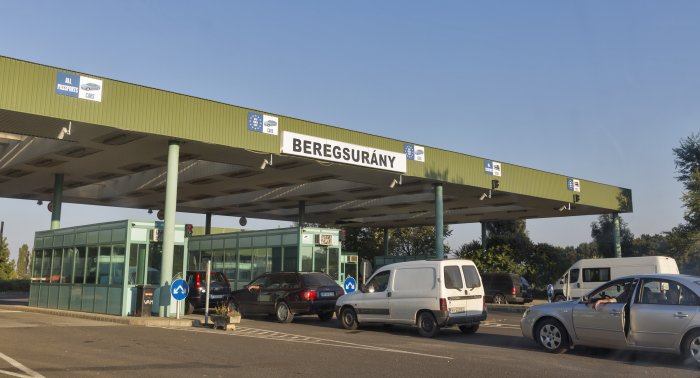U.S.-Hungarian Relationship to be Built on ‘Hope, Ambition, Mutual Interest’

Szabolcs Takács
“Hope, ambition and mutual interests” are the three key phrases that sum up Hungary’s approach to its relationship with President Joe Biden’s administration, Szabolcs Takács, the country’s ambassador to Washington, told members of the American Chamber of Commerce at an online Business Forum.
Takács had spoken about the importance of the 100th anniversary of Hungarian-U.S. diplomatic relations and about the long-term agenda of the embassy, but the questions from AmCham members very much focused on the future. He was asked where he was most optimistic about future cooperation.
“Hungary is following the changes in global economic supply chains,” he said. “Those changes have come to light as a result of the pandemic. If we can identify the areas that result from these changes, that might create new opportunities.”
From the Hungarian said, he said “The ambition is very high.” The embassy is aiming to help more Hungarian companies move into the American market environment. For that to be successful, those companies had to be aware of the business climate in the United States, but get that right and you can shoot for the stars, quite literally, he suggested.
“Hungary and the United States have tried to identify possibilities in space research. Last September, the Minister of Foreign Affairs and Trade signed a memo of understanding with Virgin Galactic. Further research, I believe, may identify some areas unknown to us; that is the hope.”
America’s top diplomat, Secretary of State Anthony Blinken has Hungarian ancestry (his maternal grandparents were Hungarian Jews), and his father, Donald, served as U.S. Ambassador to Hungary from April 1994 to November 1997. Might that lead to greater U.S. attention being paid to Hungary?, one AmCham member asked.
“I believe what is important is what we articulated in our letters, sent by the Prime Minister and followed up by other ministers,” the ambassador said. Those called for a “high level and very intensive relationship, building on what has happened” before.
“Hungary is always very open and ready for direct dialogue – as long as there is mutual respect, and I am certain there is – to be able to discuss more sensitive and difficult issues as well.”
There is, after all, a long history connecting the two nations. “2021 is a significant year of celebration and commemoration as exactly 100 years ago Hungary and the United States established diplomatic relations after the end of World War I,” the ambassador pointed out in his earlier remarks.
“It has been a very turbulent, sometimes very painful, certainly historic era that brought some very dark chapters, but also very promising chapters.”
Global Importance
One event that was in turn both dark and promising had been the 1956 Uprising, a moment of “Hungarian, European and global importance.”
Takács noted that 1.5 million Hungarians are also American citizens, representing 10% of the 15 million Hungarians around the world. The 56ers who fled Hungary for America “were victims of history, who had to leave, but found a new home in the United States. We are deeply grateful.”
If that represented part of the past, there was no doubt Biden administration will have an important part to play in shaping the future.
“The new government has quite clearly demonstrated its ambition to return to multilateral diplomatic cooperation.”
The ambassador said he expects “enhanced U.S. cooperation with Western Europe,” especially the larger powers like Germany, France and Italy, and “a new era of U.S.-British relations. The first European leader President Biden reached out to was Boris Johnson,” Takács pointed out.
“What we have seen is that a clear priority for the new U.S. administration is climate,” the ambassador said, describing it as a “cornerstone” of emerging U.S. policy, with important departments like energy, transport and agriculture “all highlighting the importance of shifting policy towards climate.”
While Takács believes U.S. climate czar (and former Secretary of State and one-time presidential hopeful) John Kerry will work closely with counterparts such as Frans Timmermans, the Executive Vice President of the European Commission for the European Green Deal and European Commissioner for Climate Action, both parties will also look for the economic advantages to be gained through sustainable development.
“There will be cooperation and competition between the U.S. and Europe, but healthy competition, which might bring the U.S. and Europe closer.” Close enough to look to reboot the abandoned Transatlantic Trade and Investment and Investment Partnership, in the wake of a mini-deal agreed in November 2020 over lobster imports?
“Hungary believes we [Europe] should negotiate a free trade agreement,” he said, but he admitted he wasn’t sure how likely success would be. “There are major differences between the major EU economies and the United States.”
COVID Recovery
If that is for the future, the more immediate goal is the post-COVID period. “The American political elite is turning its attention to economic recovery. [….] This should be good news for Europe and all stakeholders waiting for a new era of transatlantic cooperation.”
American businesses have certainly been pulling their weight when it comes to the Hungarian economy, the ambassador said.
“I am very pleased to report that U.S. companies have created the most jobs in Hungary since the outbreak of the pandemic: 2,496 jobs since last March. That is almost 25% of all jobs created.”
One consistent area of disagreement between American administrations of all stripes and Hungary has been the latter’s reliance – along with much of Europe – on Russian gas. An important step away from that had been the opening of the LNG terminal in Krk, Croatia, for unloading American gas.
“It was D-Day for energy policy because after 70 years the United States has arrived in Europe,” Takács said, adding that for those past 70 years Hungary had no alternative to dependency on Russian gas. He stressed that “cooperation with Russia will remain important,” as will the Neptune Deep gas field project off Romania’s Black Sea coast.
“While climate is high on the agenda of the United States, it does not mean an abrupt distancing from gas,” Takács pointed out, adding that, for Hungary, “gas will remain an important element” of its energy mix, alongside solar and, perhaps more controversially, nuclear. “Achieving climate goals, we believe, is not possible without nuclear.”
Energy also remains an important area of regional cooperation, as outlined in a letter sent to the Biden administration by Bulgaria, acting as the current rotating president of the Three Seas initiative, which takes in the countries of Austria, Bulgaria, Croatia, the Czech Republic, Estonia, Hungary, Latvia, Lithuania, Poland, Romania, Slovakia and Slovenia.
The initiative seeks to promote cooperation between the 12 states and their partners, contributing to economic growth and energy security, as well as boosting cohesion and unity in Europe. The letter, fully endorsed by Hungary, restates the need to prioritize developments in energy, infrastructure and digital transformation, ahead of the next Three Seas summit in Sofia this June.
This article was first published in the Budapest Business Journal print issue of February 26, 2021.
SUPPORT THE BUDAPEST BUSINESS JOURNAL
Producing journalism that is worthy of the name is a costly business. For 27 years, the publishers, editors and reporters of the Budapest Business Journal have striven to bring you business news that works, information that you can trust, that is factual, accurate and presented without fear or favor.
Newspaper organizations across the globe have struggled to find a business model that allows them to continue to excel, without compromising their ability to perform. Most recently, some have experimented with the idea of involving their most important stakeholders, their readers.
We would like to offer that same opportunity to our readers. We would like to invite you to help us deliver the quality business journalism you require. Hit our Support the BBJ button and you can choose the how much and how often you send us your contributions.








